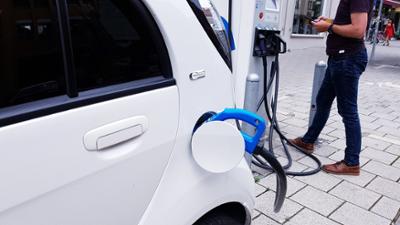

Reviewing the charger network in Europe: progress and challenges in the transition to sustainable mobility
Sustainable mobility has become a priority for Europe and Spain, with electric vehicle charging infrastructure playing a key role in this transformation. The expansion of the charging network is vital for the success of electrical mobility, and Global Mobility Call, from 19 to 21 November, will be a key forum for tackling these challenges.
Europe has seen rapid growth in the installation of charging stations for electric vehicles. In late 2023, over 500,000 public charging stations were counted in the region (European Alternative Fuels Observatory). Countries like the Netherlands and Germany lead the way for this infrastructure with a high density of chargers per inhabitant. However, there is a significant disparity between western and eastern Europe, the former being home to the majority of charging points (Statista).
The European Union has implemented specific guidelines, such as the Alternative Fuels Infrastructure Directive to standardise and expand the charging network. Nevertheless, challenges remain, especially in terms of interoperability and standardising charging systems.
The situation in Spain
In Spain, the charging network has grown significantly, although there is still a long way to go. Today, there are some 32,000 charging points according to AEDIVE. The big cities, like Madrid and Barcelona, and regions like Catalonia and the Basque country, are home to the greatest concentration of charging points.
The Spanish government has launched various initiatives, such as the MOVES III Plan, which funds charging stations and the purchase of electric vehicles. Some regions have also developed their own plans, as in the case of Madrid, with the Electrical Mobility Strategy.
The projects of leading companies in the sector like Iberdrola and Endesa X have also been crucial in the expansion of charging infrastructure, establishing thousands of charging points in the country.
Future outlook
Forecasts for Europe and Spain are ambitious, but we need to accelerate implementation to achieve objectives; the EU wants to reach 1 million charging points by 2025 and Spain, for its part, aspires to 100,000 for the same year.
Technological innovation is playing a crucial role. Fast and ultrafast chargers, capable of charging a vehicle in under 30 minutes, are gaining ground. What's more, integration with renewable energies is on the rise, with projects that combine charging stations with solar panels and battery storage.
Electrification as a solution for decarbonisation
The electrification of the vehicle fleet is one of the most viable solutions for Europe to achieve its road and city transport decarbonisation objectives, for both passengers and freight. Achieving these goals is fundamental for complying with the European Green Deal and the Paris Agreement, which seek to reduce greenhouse gas emissions and mitigate climate change.
Opinions of key stakeholders
Industry associations, like the European Automobile Manufacturers' Association (ACEA), have underlined the need for a robust charging network to support the growing adoption of electric vehicles. Manufacturers like Tesla and Volkswagen are investing heavily in their own charging infrastructure to complement the public network.
From the users’ perspective, satisfaction has improved, although complaints about the availability and functionality of charging stations are common. Recent surveys indicate that 60% of EV drivers in Europe are satisfied with current infrastructure, but demand continuous improvements (BEUC).
The politicians responsible, at both local and national level, are committed to the development of the infrastructure.
Global Mobility Call: A space for innovation and dialogue
At Global Mobility Call, at IFEMA MADRID from 19 to 21 November 2024, the situation of the charging network and solutions and business opportunities will all be explored. Experts, the politicians responsible and companies will share advances made, debate solutions and foster collaboration.
GMC will address critical issues like the interoperability of charging systems, policies supporting electrical mobility and technological innovation. There will also be discussion on the need for closer collaboration between the different stakeholders to accelerate the transition towards decarbonised mobility, in line with the goals of the European Green Deal and the Paris Agreement.
Progress is certainly being made in the development of electric vehicle charging infrastructure in Europe and Spain, but significant challenges remain. Collaboration between governments, industry and users is essential if we are to overcome these obstacles and meet the sustainable mobility goals. Global Mobility Call 2024 will be a crucial platform to drive these conversations and foster progress towards a cleaner and more efficient future.





